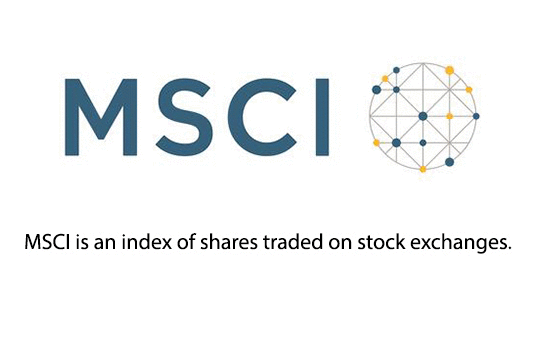What is MSCI and how do you say it in Chinese? – China’s latest top news
Jeremy Goldkorn’s selection of the top stories from China on June 20, 2017. Part of the daily The China Project newsletter, a convenient package of China’s business, political, and cultural news delivered to your inbox for free. Subscribe here.

Influential MSCI index to include mainland Chinese shares
MSCI (formerly Morgan Stanley Capital International) is a company that provides influential indices of shares that are traded on stock exchanges across the globe, but not — until now — in China. Last June, some observers expected Chinese domestic markets to be included, but they were disappointed.
Many of China’s biggest private sector companies are listed on stock exchanges in New York, Hong Kong and other markets, and therefore already tracked by MSCI. But the inclusion of domestically listed companies on MSCI’s emerging markets list would encourage a much greater appetite for mainland companies from global investors. “Acceptance of mainland China would mark a major move forward for China’s domestic markets and oblige funds all over the world to invest billions in mainland China,” according to CNBC.
This June, analysts anxiously awaited an announcement from MSCI on the inclusion of Chinese stocks. Reuters reported that foreign investors were betting “billions on China blue-chips joining MSCI index,” and that enthusiasm was not contagious enough to prevent Chinese stock markets from slumping slightly in advance of the MSCI announcement.
MSCI announced their decision as we were finishing writing this newsletter. CNBC reports:
In a long awaited decision, MSCI said Tuesday it plans to add mainland Chinese shares to its benchmark Emerging Markets Index. The index giant said it will add 222 China A Large Cap stocks on a gradual basis.
The death of Otto Warmbier and a China-based tour company
Otto Warmbier, the 22-year-old American who was convicted of “hostile acts against the state” during a vacation to North Korea, died on June 19, days after he returned to the U.S. in a coma.
- The New York Times says (paywall) the young student’s death will likely “dim, if not scuttle, any prospect of a less antagonistic relationship in the near future between Washington and Pyongyang.”
- There has been growing media interest in the China-based company that arranged Warmbier’s tour to North Korea. Consumer Affairs paints a picture of an amateurishly run company whose founder and sometime tour guide “was pretty much blind drunk the whole time we were in the country,” according to one tourist who visited North Korea with Young Pioneer Tours.
- This week, without acknowledging its role in Warmbier’s case, Young Pioneer Tours added wording to its FAQ page: “Recent cases of severe unwarranted consequences for American detainees in North Korea means we now consider the risk to Americans visiting North Korea to be too high and as such we can no longer accept Americans traveling on U.S. passports for tours to North Korea.”
- Journalist Isaac Stone Fish argues that you should still visit North Korea.
- Possibly in reaction to Warmbier’s death, on June 20, Trump tweeted: “While I greatly appreciate the efforts of President Xi & China to help with North Korea, it has not worked out. At least I know China tried!”
China worries in Canada and Australia
- The debate in Australia continues: Should the island nation fear Chinese influence or take a more sanguine approach? The latest argument is from Geoff Raby, former Australian ambassador in Beijing, and now a business consultant working on China deals. Raby argues (paywall) that “the China threat hysteria in Australia at present is making it much harder to have an informed, urgent, national debate about how we best engage with China and the neighborhood.” In response, Rory Medcalf, professor and head of the National Security College at Australian National University, tweeted, “To encourage Australian policymakers to scrutinize Chinese influence is neither ‘evil’ nor ‘hysteria’”
- In Canada, an editorial in the Hamilton Spectator argues that the government of prime minister Justin Trudeau revealed his soft touch on China by approving the takeover of Norsat by a Chinese company without a proper review. Norsat sells satellite communications systems and includes the U.S. Department of Defense and the agency that oversees civil aviation in Canada as clients.
A slum beneath a high-end Beijing apartment complex
Julong Garden (聚龙花园 jùlóng huāyuán) is a pricey apartment complex near the popular bar and embassy district of Sanlitun in Beijing. It was built in the 1990s, when it was still common to install large air raid defense shelters in the basements of high-end apartments. Earlier this week, state media reported (in Chinese) that inspectors found about 400 people were living in cramped conditions in the air raid shelter beneath Julong Garden, paying about 1,300 yuan (US$190) each to an unknown slumlord. The tenants were found to be using gas cookers and electrical appliances, and enjoying cigarettes in a “smoking room.” Authorities have vowed to clean out the basement.






